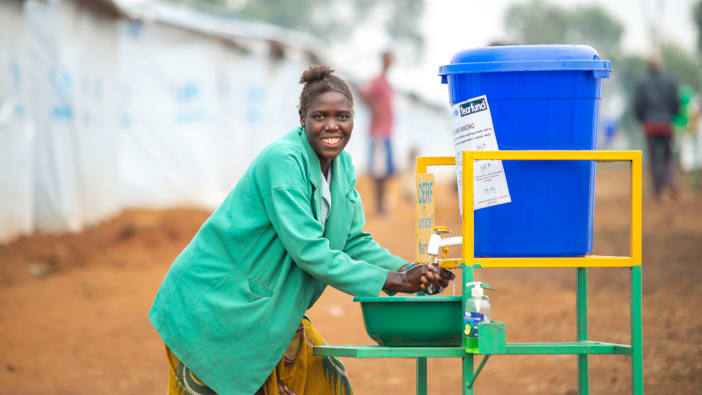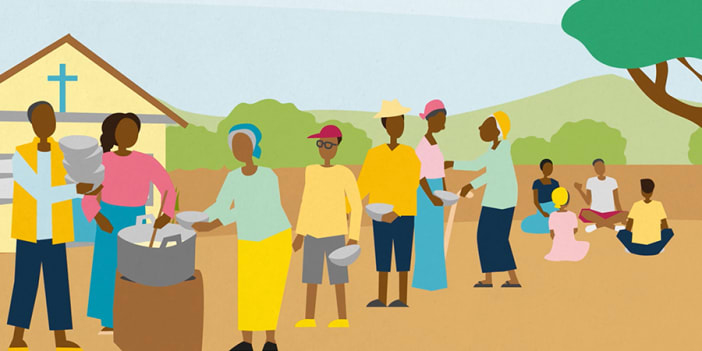For several years there has been ethnic conflict in the northeast region of the Democratic Republic of the Congo, particularly between the Lendu and Hema communities. During 2002 the region went through many hardships due to ethnic tensions. Many people lost their lives and fled the area, leaving all their belongings and homes. IPASC (Institut Panafricain de Santé Communautaire) is a Tearfund partner based at Nyankunde, Ituri province. It provides health and development training
IPASC has suffered from this war in many ways, notably in lives and goods lost. Our academic activities were interrupted and we had to leave our campus. Every team member has been affected in some way by the war. Some have lost their families and friends. Our student leader was assassinated. One staff member, Mangi, lost his father, his house was burnt and 29 of his relatives were killed in his village. Others have lost virtually everything they had accumulated over many years – furniture, utensils, livestock, land, money, clothing, important personal documents such as school certificates and more. The terrible acts committed by others have caused depression, humiliation and despair. One of the team members declared, ‘I was so despondent that I felt everything was hopeless and thought about death.’
At first, many of the IPASC staff members took shelter in the bush around Nyankunde. Soldiers were controlling the whole area. In the bush there was no food, no drinking water, no medicines, no salt, no cooking oil, no market, no houses and no money. Colleagues in Bunia managed to send them some blankets, utensils, food and medicine when there was a way in.
As the situation deteriorated, the team members, together with many others, were forced to leave the area for north Kivu, over 200km away. This was a long, difficult journey, walking through the forest. They needed all their perseverance and determination to keep going.
Some of our staff established a temporary base in Bunia town. A team of three was sent to Aru, in the far north-east corner of DRC, to see whether IPASC could be transferred there on a temporary basis. The local population and religious, political and administrative authorities gave an overwhelming welcome to IPASC. As well as the welcome, the community offered a piece of land for our activities!
During this troubled time the IPASC staff really appreciated a three-day retreat on stress and trauma management. It was the first time that many of us had met since leaving Nyankunde. Despite being of many different ethnic groups, including those fighting one another, the friendships and excellent relationships within the team have remained firm. Everyone has been carrying pain and bereavement from the massacres. Each day started with a meditation led by a local priest or pastor from the three main churches. Some of the sessions were painful as we confronted the enormous sense of loss, but it was also helpful to deal with the hidden grief. We were ‘at last being able to bury the dead’. This retreat was a process of healing. We learned that justice will reign among us only if we forgive each other.
The warmth of the welcome from the local authorities and churches in Aru has been a huge encouragement. On World AIDS Day, we asked the authorities if we could arrange some activities for the town. They were delighted, and joined in themselves. Staff and students marched through the town carrying HIV/AIDS awareness banners. We gave some educational talks and drama on the football pitch. The day was a huge success and helped us feel a sense of acceptance in Aru.
Written by Amunda Baba, Elias Alsidri Assia and Pat Nickson, who can be contacted at: IPASC, PO Box 21285, Nairobi, Kenya. E-mail: [email protected]









